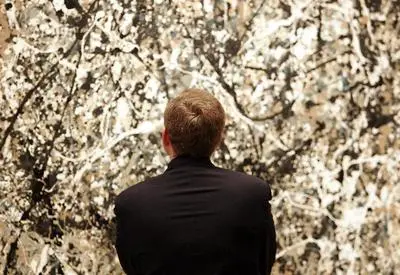It’s August and it’s hot. Holiday time. Which reminds me of one of my favorite quotes by Robert Musil from his novel The Man Without Qualities:
'What sort of life is it that one has to keep riddling with holes called ‘holidays’? Would we punch holes in a painting because it demands too much from us in appreciation of the beautiful?'
Musil is making fun of the breathtakingly popular and influential idea that we should turn our life into—or treat our life as—a work of art. Everyone who is anyone in Western modernity endorsed some version of this metaphor, from the Earl of Shaftesbury to Goethe, from Nietzsche to Duchamp. And these days the self-help industry also tries to make the most of it. For my part, I'm on Musil’s side and think that this is one of the most overhyped ideas in Western thought.
If you squint, you could see how this life as a work of art idea could make some kind of sense in the 19th century, when works of art were well-constructed coherent wholes. I can see someone striving to turn their life into a Stendhal novel. But turning your life into a Robbe-Grillet novel, where literally nothing happens, or a Bolaño novel, where lots of terrible things take place, would be a very dubious enterprise.
In a general sense, the problem we face is that art has become too much like life. In fact, the big slogan of the art movements in the last half century or so (at least since fluxus and pop art) has been that art should not be cut off from life. So if art becomes like life, then turning your life into a work of art either makes no sense or it becomes a pure anachronism. There is even a sub-genre of visual art where the artist cuts actual holes into their pictures, which makes the Musil quote I started out with even funnier…
___
"The problem we face is that art has become too much like life... So if art becomes like life, then turning your life into a work of art either makes no sense or it becomes a pure anachronism."
___
But perhaps I’m not being charitable enough. Maybe the main idea here is not that our life should be turned into a work of art, but rather that our attitude towards life should be like our attitude towards a work of art.
This approach is not without its own champions either. Albert Camus, in his largely forgotten novel A Happy Death, writes that “like all works of art, life also demands that we think about it”. A nice one-liner, but the reference to works of art is really something of a red herring. There are lots of things that demand that we think about them — philosophy papers, news from the White House, the mystery of why Cinderella’s shoe would fall off if it fit her foot perfectly.
 SUGGESTED READING
Philosophy vs. Psychology
By Andrew Bowie
SUGGESTED READING
Philosophy vs. Psychology
By Andrew Bowie
So works of art are not particularly helpful in this respect as a comparison for everyday life. And while some works of art surely demand thinking about them, what is there to think about the Brandenburg Concertos or a Mondrian painting? Camus’s bonmot does not really add anything new to the old ‘unexamined life not worth living’ mantra.



















Join the conversation